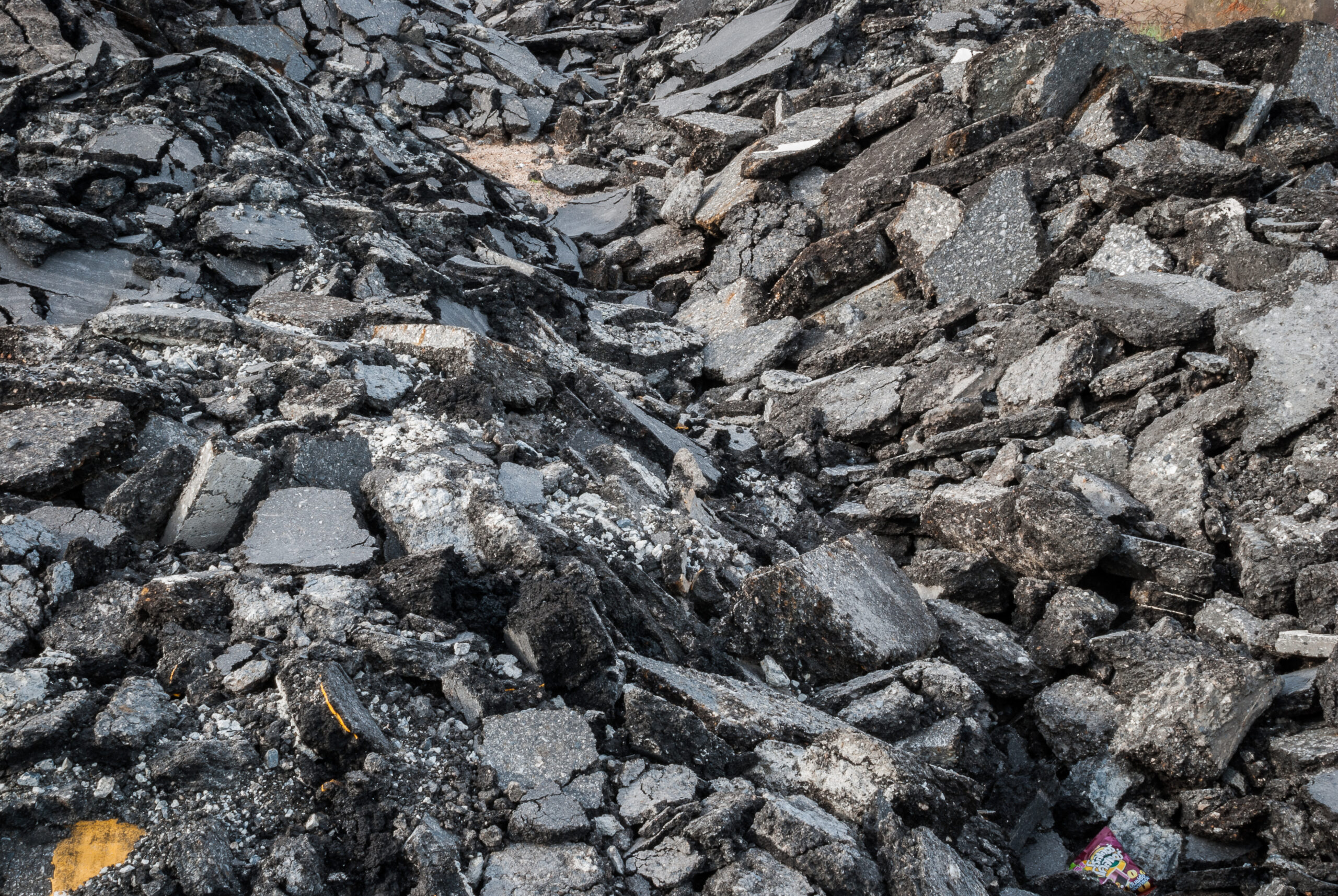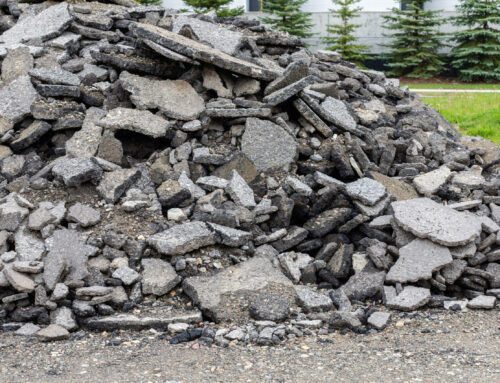As the world becomes increasingly aware of the need for sustainable practices, industries across the board are re-evaluating their processes to minimize environmental impact. The asphalt paving industry is no exception. One of the most significant strides toward sustainability in this field is the widespread adoption of asphalt recycling. By reusing old asphalt materials, the industry not only conserves natural resources but also reduces waste, lowers energy consumption, and decreases greenhouse gas emissions. This time on the Sunrise Asphalt blog, we explore the environmental benefits of asphalt recycling and why it is a key component of eco-friendly construction practices.
What Is Asphalt Recycling?
Asphalt recycling involves reclaiming existing asphalt pavement material, known as reclaimed asphalt pavement (RAP), and reprocessing it for use in new pavement projects. This process typically involves milling the old asphalt surface, crushing it, and then mixing it with new asphalt binder and aggregate to create a fresh paving material. The result is a high-quality product that can be used for constructing roads, driveways, parking lots, and other infrastructure projects.
Conservation of Natural Resources
One of the most immediate environmental benefits of asphalt recycling is the conservation of natural resources. Traditional asphalt production requires significant quantities of virgin materials, including aggregates like sand, gravel, and crushed stone, as well as asphalt binder, which is derived from petroleum. By recycling existing asphalt, the demand for these raw materials is significantly reduced. This not only conserves finite natural resources but also minimizes the environmental degradation associated with mining and extraction activities.
Reduction in Waste
The construction and demolition industries are major contributors to landfill waste, with large volumes of materials ending up in landfills each year. Asphalt recycling helps to mitigate this problem by diverting old pavement materials away from landfills and reusing them in new construction projects. This reduction in waste is particularly important as landfill space becomes increasingly scarce and expensive. Additionally, by reusing materials that would otherwise be discarded, the industry can reduce the environmental impact associated with the disposal of asphalt, including the release of potentially harmful pollutants into the soil and water.
Lower Energy Consumption
Producing new asphalt from virgin materials is an energy-intensive process that involves the extraction, transportation, and processing of raw materials. Asphalt recycling, on the other hand, requires significantly less energy. The process of milling and crushing old asphalt is far less energy-consuming than producing new aggregates and asphalt binders. Moreover, many modern asphalt plants are equipped to process recycled materials on-site, further reducing the energy required for transportation. This lower energy consumption translates to a reduction in the carbon footprint of asphalt production, making recycled asphalt a more sustainable option.
Decrease in Greenhouse Gas Emissions
The reduction in energy consumption associated with asphalt recycling has a direct impact on greenhouse gas emissions. Traditional asphalt production processes release significant amounts of carbon dioxide (CO2) and other greenhouse gasses into the atmosphere, contributing to global warming and climate change. By recycling asphalt, the industry can reduce its overall emissions. Additionally, because recycled asphalt can be processed and laid at lower temperatures than virgin asphalt, the emissions associated with heating the materials are also reduced.
Enhanced Pavement Performance
In addition to the environmental benefits, recycled asphalt can also improve the performance and durability of pavement surfaces. The reprocessing of asphalt materials often results in a product that is more flexible and resistant to cracking, which can extend the lifespan of the pavement. This enhanced durability reduces the need for frequent repairs and replacements, which in turn conserves resources and reduces the overall environmental impact of paving projects. By providing a longer-lasting surface, recycled asphalt contributes to more sustainable infrastructure that requires less maintenance over time.
Cost-Effective and Eco-Friendly
Asphalt recycling is not only environmentally beneficial but also cost-effective. The reduced need for new raw materials and the lower energy consumption associated with recycling result in significant cost savings for both contractors and clients. These savings can be reinvested into other sustainable practices or used to enhance the quality of the project. Furthermore, the use of recycled asphalt is often incentivized by government agencies and environmental organizations, making it an attractive option for projects that aim to meet green building standards or achieve sustainability certifications.
Supporting the Circular Economy
The concept of a circular economy emphasizes the continuous use of resources by reusing, recycling, and repurposing materials rather than following a traditional linear economy model of “take, make, dispose.” Asphalt recycling aligns perfectly with the principles of a circular economy by keeping materials in use and reducing waste. By incorporating recycled asphalt into new projects, the paving industry supports this sustainable economic model and contributes to the broader goal of reducing the environmental impact of construction activities.
Asphalt recycling offers a range of environmental benefits that make it a crucial practice in the pursuit of sustainable construction. As the demand for eco-friendly construction practices continues to grow, asphalt recycling will remain an essential component of the industry’s efforts to build a greener, more sustainable future.





